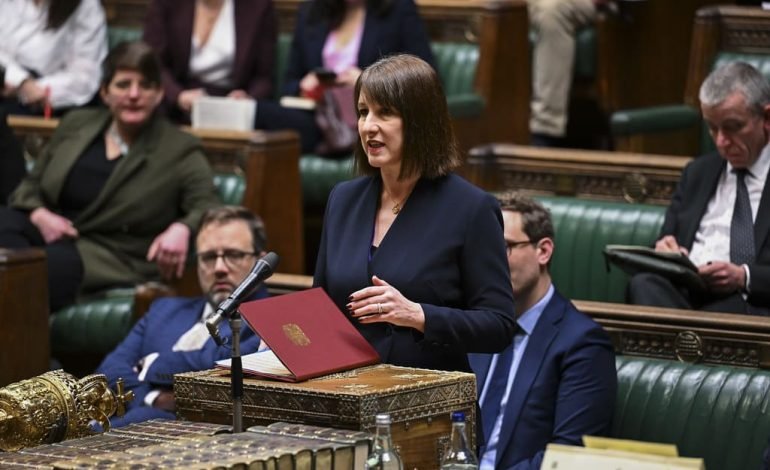Tax rise autumn warning as Reeves faces £41bn gap

A tax rise this autumn is looking increasingly likely, with Chancellor Rachel Reeves facing growing pressure to fill a £41.2bn shortfall while sticking to the borrowing rules she has called “non‑negotiable.” According to the National Institute of Economic and Social Research (NIESR), a moderate but sustained approach to raising taxes could help close the gap, with reforms to council tax and changes to VAT among the measures being discussed.
The government insists that the best way to strengthen public finances is through economic growth rather than tax hikes. However, with slowing growth and weaker‑than‑expected revenues, NIESR warns that Reeves could be left with few options. It has suggested the Treasury consider a reform of the council tax system to make it fairer and more effective, alongside potential adjustments to pensions allowances and extending the freeze on income tax thresholds, currently due to end in 2028.
When she took office, Reeves introduced two clear borrowing rules: day‑to‑day spending must be funded by revenue, and debt must be falling as a share of national income by the end of a five‑year period. Yet recent data on the UK economy has cast doubt on whether those commitments can be met without some form of tax rise this autumn.
Reeves has so far avoided ruling out new tax measures, despite Labour’s manifesto pledge not to raise income tax, VAT or National Insurance for what it described as “working people.” The chancellor now faces what NIESR has called a “trilemma,” having to choose between meeting her spending commitments, keeping tax promises or sticking to her own borrowing limits.
Economists also argue that raising revenue could help create a “buffer” to reassure investors about the stability of the UK’s public finances and even bring down government borrowing costs. But the political challenge is clear: any tax rise in autumn would almost certainly provoke a backlash, not just from opposition MPs but from within Labour itself, particularly after recent welfare changes already reduced the planned savings from £5.5bn to less than half.
The economic backdrop adds further uncertainty. Global factors such as the trade policies of US President Donald Trump, combined with domestic pressures including the rise in employer National Insurance contributions, have left UK businesses cautious. Domino’s Pizza, for example, recently said that rising labour costs had slowed its rate of new store openings, with many franchisees waiting for the Autumn Budget before making investment decisions.
Despite these headwinds, there is cautious optimism. NIESR expects the UK economy to grow by 1.3% in 2025 and 1.2% in 2026, placing it mid‑table among G7 nations. The IMF also forecasts that Britain will be the third fastest‑growing major advanced economy this year, behind only the US and Canada. Even so, the think tank argues that alongside any tax rise in autumn, the government should also focus on policies to improve productivity and living standards, particularly as the poorest 10% of households remain 10% worse off than before the pandemic.
Reeves is now under mounting pressure to act decisively. Reforming council tax, or even replacing it with a land value tax, has been floated as a longer‑term solution, while further welfare reform aimed at helping people into work is also being considered. But for many in Westminster, the real question is whether Reeves will be forced to break Labour’s tax promise to stabilise the nation’s finances.
For Londoners and the rest of the UK, the outcome of this debate will shape not just the Autumn Budget, but the cost of living, public services, and economic stability for years to come.
Stay in tune with the latest on tax rise autumn warnings and how this could affect public borrowing and London household finances. Visit EyeOnLondon and let us know your thoughts in the comments—your views matter.
Follow us on:
Subscribe to our YouTube channel for the latest videos and updates!
We value your thoughts! Share your feedback and help us make EyeOnLondon even better!









